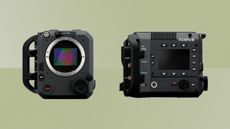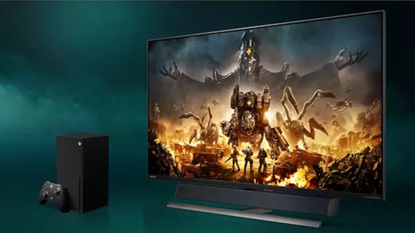

Microsoft unveiled its Designed for Xbox gaming monitors last month and we wanted to know what makes them so special. After all, you can pick up any console-compatible monitor without the Xbox marketing attached, so why should you opt for a piece of kit from this range over anything else? We decided to go to the source and asked Microsoft for the specifics to find out the answer.
Generally speaking, if you're in the market for a new TV for your Xbox Series X and want to make the most of the hardware, you'll want something that can support 4K gaming at 120Hz. But TVs with HDMI 2.1 features can be expensive and aren't available in sizes under 48-inches so if you want something smaller for your setup that won't leave you destitute, monitors are a better option.
And if you're into competitive gaming, online shooters, or just want the best performance possible, then monitors are once again your friend; the selection in the Designed for Xbox range boast 1ms response times, whereas a TV's processing means it comes in at around 10ms.
So with all that being said, let's get into what sets the Designed for Xbox gaming monitors apart from any other monitor you can pick up online or at a store.
- Nintendo Switch OLED: 5 games that should look INCREDIBLE on it
- Dell Latitude 7320 Detachable Laptop review: a remote working superstar
- Nintendo Switch OLED has left me feeling like a discarded "legacy" gamer
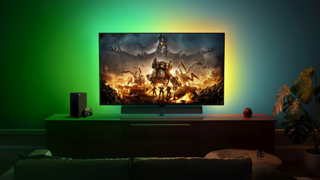
Is there a checklist of features the monitors meet?
All three monitors in the range support 4K resolution at 120Hz, with only the Philips Momentum 559M1RYV 55″ seeming to support VRR (variable refresh rate). We reached out to Microsoft to ask if there was a checklist of specs that Microsoft is looking for before allowing a monitor to join its Designed for Xbox program, but that doesn't seem to the case. A Microsoft spokesperson said:
"Our goal was to make it easier for fans to find the ideal gaming monitor that takes full advantage of HDMI 2.1 – such as Variable Refresh Rate, HDR and 4K at 120Hz. That is why we worked with leading display manufacturers to deliver gaming monitors as part of the Designed for Xbox program that take full advantage of Xbox Series X|S and HDMI 2.1."
An additional comment added that "while there are TVs that support HDMI 2.1, these gaming monitors are some of the first that support 4K@120Hz with HDMI 2.1."
Upgrade to smarter living
Get the latest news, reviews, deals and buying guides on gorgeous tech, home and active products straight to your inbox.
So don't expect monitors in the range to sport every single feature being touted. It'll certainly make it easier to narrow down your search, but you should check out the details of the one you want before you pre-order to make sure it has everything you need.
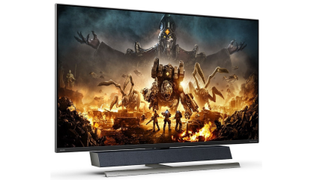
Xbox specific modes explained
The Philips Momentum 559M1RYV 55” and the ASUS Strix Xbox Edition Gaming Monitor XG43UQ 43” have dedicated 'Xbox modes'. The ASUS monitor's Xbox mode offers the "best color, contrast, and hue settings when paired with Xbox Series X|S," so there's not a great deal to the mode aside from tweaks you could implement yourself – but presets are handy if you don't like to fiddle about with picture settings.
After speaking to Philips to get the lowdown on its Xbox picture mode, it's a little more elaborate. You can read the finer details of Philips Xbox picture mode here but in short it drills down to picture quality, ambiglow settings, and HDMI CEC.
Microsoft says, "in some cases, you’ll see partners add additional features or settings to improve the experience, but all gaming monitors that are a part of the Designed for Xbox program are designed to deliver the best possible experience on Xbox." So if you pick up one of these monitors, you'll be getting a tailored for Xbox experience with their preset mode for the console. Not worth paying for on its own, given you might want to fine tune the settings yourself, but it's a nice added touch for brands that are part of the program.
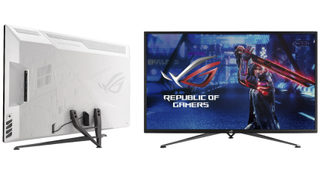
In a nutshell...
The initial announcement for the Designed for Xbox gaming monitors states that these monitors are a collaborative effort between Microsoft and the display manufacturers. We were curious as to how involved the Xbox team actually was, especially given that in some instances (like the Philips monitor) the hardware isn't a massive leap from its predecessor.
According to a Microsoft spokesperson, the company worked with all of its "Designed for Xbox partners to validate quality, performance, safety and security with Xbox consoles," adding "we work together with our partners to help ensure HDMI 2.1 features are implemented accurately."
They went on to further clarify, saying, "When a product is Designed for Xbox, it indicates we worked closely with our partners to validate all Xbox hardware experiences, such as quality, performance, safety and security, to provide the best possible experience while gaming on your console."
Ultimately, the Designed for Xbox badge indicates that you're buying a product that has been 'tested' with the Xbox Series X and Xbox Series S to tick off all of those things. The extent of Microsoft's involvement seems to stop there, based on our correspondence with a PR rep. If that's the case, there's not a lot to it other than a bit of marketing aimed at presenting gamers with easy-to-understand options that they know will work with their console.
Sure you could just do your own research and buy a monitor from anywhere else without the badge, but it's still early days in the world of 120Hz 4K monitors. Why fritter away time researching when Xbox has done the hard work for you? As it stands, these monitors offer solid options for PC and console gamers alike. They're very much worth your time, even if there's not really anything specifically tying them into the Xbox Series X aside from some snazzy marketing.
Shabana worked at T3.com as News Editor covering tech and gaming, and has been writing about video games for almost a decade (and playing them since forever). She's had bylines at major gaming sites during her freelance career before settling down here at T3, and has podcasts, streaming, and video content under her belt to boot. Outside of work, she also plays video games and should really think about expanding her hobbies. If you have any tech or gaming tips, shoot over an email or DM her on social media.

